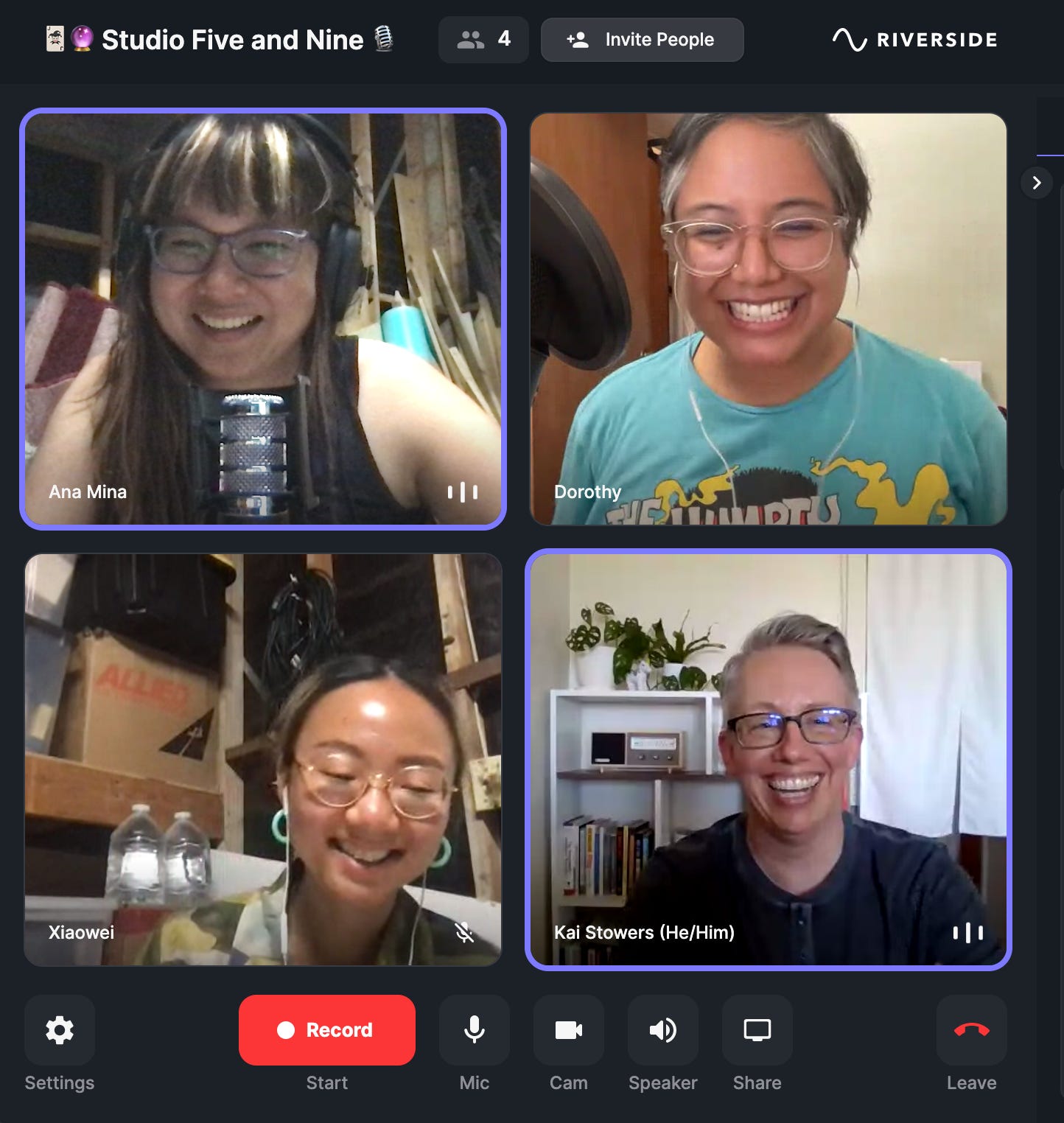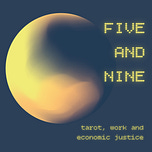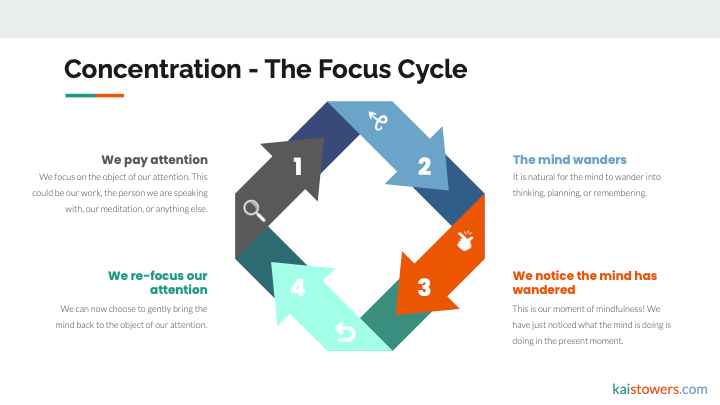This is Five and Nine, a podcast newsletter at the intersection of magic, work and economic justice. Welcome to Season 1, Episode 7.
This episode closes out our pilot season, and we’re regrouping while we prepare for Season 2 (in the autumn/vernal cycle). If you’ve been tuning in this season, we’d love to hear from you! You can fill out 2 minute survey here and help us grow:

Resources
Music
International Rag, composed by Irving Berlin and performed by Pietro Deiro in 1913.
Our Guest’s Work
On kaistowers.com, Instagram, LinkedIn and Medium
Out of Sight, Out of Mind: Mitigating bias in the age of remote working
The Focus Cycle
Other Resources
Why meditation is worth doing badly (Headspace)
Five and Nine 1.06 Part 1. Speaking Up at Work as a Quiet Person
Transcript
007 Podcast: Kai Stowers
Dorothy: We have a special guest! We are so thrilled to introduce you all to Kai Stowers, an inclusion builder, a mindfulness practitioner and integral coach. He started his career as a chemist, working for small labs and Fortune 500 companies doing research in the pharmaceutical sciences.
In 2007, while working at Genentech, he started a regular mindfulness practice. He began attending, teaching and inevitably leading the mindfulness through meditation group that started out with 200 people and grew to 800 members. I mean, that sounds like influencer to me!
So this experience served as a catalyst for coaching individuals and teams. He earned his Professional Coaching Certification (PCC) in 2015, and in 2018, he earned an Executive Master’s Degree in Organizational Psychology & Change Leadership from Teachers College, Columbia University.
So at present, he works full-time in organization development and DEI [diversity, equity and inclusion], empowering leaders who have a commitment to transforming their organizations by building self-awareness, changing the environment, and leading teams through the most difficult and challenging conversations.
Welcome, Kai. We're so happy to have you.
Kai: Thank you so much for inviting me to the podcast.
Dorothy: So let's just start off. You've lived a number of lives — obviously scientist, coach, mindfulness practitioner and in this time of Great Resignation or what is being called the Great Resignation or Reshuffling, at the very least Reevaluation.
Can you talk about how you've reevaluated your own work and career trajectories?
Kai: Yeah, let me talk about who I was when I graduated college. So I graduated college. I had this chemistry degree. I was all about the sciences. I was like, “I just wanna be in the lab doing cool stuff. Why do we have to do this people stuff? I don't even understand why HR is interviewing me for this job because they can't assess my technical skills. Like they gave me a bunch of easy questions”
Time passes, and I worked for different leaders, and I did work for different organizations. I got a sense that maybe this people stuff, organizational culture, this leadership thing, actually made a really big difference in the kind of science people could do.
One significant turning point was when I had the opportunity to work for a leader who had both a mindfulness and a coaching background. And then I got to see the personal and professional growth that I was able to achieve and go through under his leadership, as well as how the entire team and how all the other people had room to grow and develop.
I was really hooked on this new space, and it took a while to make the transition out of the lab and into doing organization development and DEI full-time, but it is really exciting.
Xiaowei: So I'm hearing you talk about these career pivots and changes, and there's a sense of ease about it. But did it ever enter into your mind that kind of scary feeling like, “oh wait, I'm starting to drift really far from the realm of chemistry or the technical stuff. Am I doing the right thing? Is this the right choice?”
Did doubt ever enter into your mind as you were going through these pivots?
Kai: Absolutely. And I don't think you can make big changes in your life or your career without having doubt at some point. One thing that really helped me through that is to just scope things down. So if the idea of making a complete career change felt too overwhelming, it was like, okay, what is it about my current job that I enjoy? And can I do more of that?
That's actually how I got into leading mindfulness at my organization. And that was a really helpful piece to help me know that I was moving in the right direction. And maybe I wanted to take a bigger step later, but I didn't have to take a huge leap.
And the other thing that helps is part of my master's degree is change leadership. We know that change is just hard for people. We might want the end results of change, but going through change, where we wanted this part of the change, but we didn't realize that it was gonna make this other thing harder. Or we were gonna have to figure out this new thing, and I had to remind myself of some of the tools that we learned. I could use those tools to manage my own change.
And one of my favorite ones, when I was really in the midst of big changes — when I left my last corporate job to start my new company — is just to remind myself of one thing that didn't change and was staying the same. Even when everything else around me felt like it was topsy turvy.
Dorothy: I need to remember that on a daily basis. So yeah. I think that that's a really great question from Xiaowei because I feel a lot of people feel that. I've heard this from artists being kind of skeptical of authenticity. People are always ever evolving. So you can't really say to yourself, “I need to stick to this one thing all the time, because this is what I studied, or this is what I told myself that I would do at one point in my life.”
Not to put Xiaowei on the spot, but Xiaowei, and I, we’re both in education. We see our students suffer from that. That I need to do this thing, I need to do what I said I would do, because also my parents told me to.
This leads me to the next question we had for you, which was considering all of that, on top of a global pandemic, what are some of the trends you're seeing about attitudes towards work and career in 2022?
Kai: I think burnout is just ever present in people. Many people worked so hard during the pandemic. Boundaries between work and home life sort of dissolved. There's studies that show people worked longer hours during the pandemic than they did before. And I think people still really care about their work.
They care about the difference they make in the world, but this fatigue, and then this time of the pandemic forced a lot of self-reflection. I think it forced the reflection of, “Why am I putting up with all of this extra stuff?”
And maybe it's bad leadership, maybe it's bad time management, maybe it's unproductive conflict that organizations don't know how to work through. And I think that's one of the trends that's really driving the Great Resignation. I might still enjoy the work, but I'm tired of putting up with X, Y, or Z at my job.
Xiaowei: I've been having these conversations with a lot of friends. Like how do you know that you're burnt out versus you just need an entire career change? I think a lot of people they're like, maybe I don't want a job on the computer at all and I wanna become a farmer now.
Do you have any advice?
Kai: I would start with, if you're really burnt out, don't make a decision right then and there. Take some time to get your feet back under you. Take some time off, so you can actually think clearly.
And sometimes you'll find that yeah, my decision to become a farmer that is right on, and I'm still gonna do it. And other times with some more time and space, it's like, okay, I just have some more bandwidth there are things that might be fun about being a farmer, but there's still these parts of my job or my career that sound pretty good. It's just the way I was working or the organization I was working in was not sustainable.
Dorothy: Okay to that, because we're on a roll here, one of the things that Xiaowei’s question actually reminds me of is, what's the difference between reevaluation and romanticizing a career, because one of the ongoing conversations that Ana, Xiaowei and I have is sussing out the difference, if there is one — which I think in a lot of ways, there are differences between labor, work and and career.
Kai: Mm-hmm.
Dorothy: And this is a reoccurring theme.
So people oftentimes don't think about the labor involved in a particular job that they romanticize, essentially. So then what is a concrete example or a concrete strategy or tactic that you would suggest between someone reevaluating. I know you just gave us one — taking time. But reevaluating versus romanticizing, that's a really blurry space between the imagination versus what is practical and pragmatic.
Kai: I would really advise people to talk to people who are in that field. You wanna go and find out, what do they love about their job? What do they hate about the job? What are the skills they use everyday? What do they need to be good at that? So that way you can build a more concrete picture of what the work is, and maybe it's gonna align with your fantasy, in which case you are good to go.
Let's take the farmer example. I thought I would be, you know, living in an idyllic place with sheep dotted over the landscape, but actually, here are these practicalities of getting up really in the morning, never having a day off, feed lots. I don't know, are you gonna be able to slaughter your animals? Are you gonna be okay with that? Right? Like what are the realities of this career?
I feel like I got a little dark there.
Dorothy: We love that here, please.
Xiaowei: I mean, that's real because I'm like, I could talk about farming all day and how people often romanticize it. But I think to pick up on the romanticization thread, I mean, in some sense, there is no perfect workplace, right?
Like, we're all just humans with our own and insecurities and visions. And we bring that to work a lot of the time. And so, to that end, for people who take this break and then they go back into the workplace, and maybe they start seeing some dynamics.
At this time of the Great Resignation, there's a lot of worker organizing and union unionizing too. And I'm curious, how on one end, there's a Great Resignation, but how much do you also see workplaces shifting and really trying to accommodate and transform as a result of the pandemic?
Kai: I think there's different trends. I think there are some organizations who really are saying, okay, the way that we have worked in the past has fundamentally changed, and we need to be on top of that. We really need to look at what remote or hybrid work looks like. And how do we do that?
Well, , how do we tool up our managers and our leaders to navigate in this new environment effectively? And there's other organizations that are like, if you are not here 40 hours a week, you need to look for a new job.
Part of what we should be doing when we're looking for our next move is ask, what companies fit our philosophy? Are we somebody that does well in the office? When someone says you have to be here 40 hours a week, you're like, great. Like know which organizations would be a good fit for you. And if you're somebody who's like, I am never again doing a two or three hour commute in my life, and it needs to be remote first, look for those organizations.
[13:18] Diversity, Equity and Inclusion
Dorothy: So Kai, you wrote this article in 2020 titled Out of Sight, Out of Mind: Mitigating Bias in the Age of Remote Working. So you provided some concrete examples of how team members, but much more specifically leaders within an organization, what they can do to ensure that they're not prioritizing the loudest, the most talkative. Having written that piece in 2020, I'm curious how some of your strategies and perspectives might have changed.
But first before you answer that, could you give a little bit of a preview as to how you started the article, because you play hockey.
Kai: Yeah. So I am a white person. At that time, I had learned about unconscious bias. I had realized I am a human, I have unconscious bias, and my assumption at that point was, oh, if I know what my biases are, I'm good to go. I just need to be aware, and it's not gonna play out.
And at the time, I was captaining a team in hockey, and whenever somebody couldn't make it, we would be able to ask somebody else to step in as a substitute player. And when I reviewed my choices over time, knowing that I had these unconscious biases thinking I was perfectly aware of them, I noticed that I had biases towards other white players and players who are more extroverted.
And I realized that just awareness isn't enough. And what I recommended is some sort of process if you were somebody who was doing selection in any sort of activity. And what I found is when I would look at the list of all of the available substitutes, I would be reminded of the people who were just out of sight, out of mind.
And then I could make more fair selections because it had nothing to do with someone's skill or ability. There were really good players who were maybe more soft spoken, more introverted, often who were Asian. This wasn't on my radar when I took a really quick minute to be like, okay, who should I ask?
Here's the more extroverted person. Here's the person who's always sending me an email saying, Hey, I wanna play. So it was a moment of humility, which I think we need in order to do this work, and it resulted in a better process.
Xiaowei: I think so much of what we think about leadership, or just generally being in the workplace, even if you aren't a leader, is just being like, “Oh no, I'm right.” You don't wanna admit that you made a mistake, right? Because it's scary. And also you're like, maybe I'll get fired.
I think, especially for leaders, how do you see mindfulness playing into supporting leaders and maybe being more vulnerable or admitting their mistakes?
Kai: Yeah. I think one of the really important things mindfulness can support us with is our own reactivity. And so if those waves of reactivity aren't so big, they're easier to navigate. So a lot of times we don't wanna be vulnerable because it feels scary or there's fear or there's shame.
And when that fear and that shame gets really big, it's hard to work with. It's hard to choose a different path than whatever our habitual response is. But if our body and our mind and our hearts are a little bit more settled, we might be like, “Oh, this is shame, and I don't have to believe what this story is telling me. Maybe there's other options available. Maybe I can be more vulnerable even though events in my past have told me that maybe that's not a good idea.”
Dorothy: We oftentimes get questions from our community members, and in a previous episode, we were asked by a member of the community or our audience, “I wonder how we who have a harder time trying to feel entitled or confident could communicate our needs effectively so it does not make us feel uncomfortable.”
This is someone that asked who was a part of an international team. So obviously this is culture. This person was talking about more Western modalities of being a part of a team, essentially. And we welcome how you might answer that question.
Kai: So I would actually start with, being comfortable isn't the goal. One of the goals is to spread out the discomfort evenly across the team. Cuz what happens often is, whoever the dominant group members are feel really comfortable. If it's a culture where everyone's happy to interrupt and throw their voice into the room, everyone else who is not comfortable with that holds all the discomfort in the room.
So having those difficult conversations surfacing, what are all of the different communication patterns in this group? This isn't work that just one person should have to do. This should be part of the normal process of team building and setting norms.
Dorothy: I always say a thousand percent, a hundred percent. Well, I just said a thousand percent. Agree!
I think that's something, Ana, Xiaowei and I have talked about when we received this query, actually the different ways of navigating how we might show up, not just for ourselves. And I say this as someone who is talkative, and so how might I step back, and enable an opportunity for someone to step up. But we also know that that's not easy. Everyone has a different working style.
Let's go back to the article. In your article, Kai, you give concrete examples of how people in a team might actually help facilitate this redistribution. Maybe it's not even redistribution, but this dispersion of discomfort that inevitably leads to maybe a stronger working environment that actually welcomes dissent, or generative dissent maybe.
And if you could speak to some of those strategies that you actually mentioned in the article, that would be great.
Kai: So when we're assigning work, if we just make one decision and never reflect on it, we will not see patterns. Bias can show up in one decision, but it's much easier to see when we can look at a pattern. And so to move leaders out of this reactive mode of, “Oh, this needs to be done. Here's this person I know who can do it already. I'm just gonna give it to them every time.”
If you can sit back and look at your org chart and start asking questions like, “Who would like to do this work?” Not just who has the skills now, but who would really like to learn those skills and develop over time?
We can sit back and look at the types of work we have. So what is the really glamorous work that's gonna get us visibility and get us promoted. And what's that housekeeping work that has to be done for us to be productive? Is that getting evenly distributed across the team? A lot of times we know that women and minorities wind up with a lot more of the housework, a lot less of the glamorous work that leads to promotions, and white people and men tend to wind up with the work that's gonna get them the visibility to move up the organization.
So checking these common biases, like is this happening in my group? Oh, if it is, then now I can do something about it. If I don't know about it, I can't do anything.
[20:44] What is mindfulness?
Ana: I'm wondering if you can define mindfulness for the Five and Nine audience.
Kai: So mindfulness is a really broad category. And what mindfulness means is we are aware of what we are doing in the present moment. We are aware of emotions or sensations in our body, and we're not getting completely carried away by them. Or even if we are getting carried away by them, we're like, I'm getting really carried away at this moment.
So it's just some awareness of what is happening in this moment as we're moving through the world. So mindfulness can be the informal practice that I just described, but it also includes meditation where we intentionally practice things like attention or focus or kindness towards ourselves or others. It could include practices where we practice compassion.
Dorothy: It seems like we're in this twin environment of both mindfulness taking off in business spaces. So on the one hand it's absolutely necessary. But then on the other hand, it's often framed as a tool for productivity.
So what are the risks you see, and what are the ways forward?
Kai: I think that's a really good question. There are different ways to approach mindfulness. So there are some people who really wanna go deep in their practice. They wanna invest in long periods of meditation. Maybe they have a Buddhist faith, and they wanna work towards enlightenment.
And then there's other people, maybe they're a busy leader or maybe they've got a family. And what they've realized is even if they spend five minutes meditating each day, they're a little bit less reactive. They yell at their kids less. They can roll with the inevitable challenges of work a little bit better, and sure, maybe they're using it for a productivity tool, but without knowing a specific person, I'm not someone who likes to judge how somebody is using mindfulness.
I will say that mindfulness can be so much more than a productivity tool, and I would hope that we don't lose sight of that. But if somebody is using mindfulness in a way that benefits them and the people in their lives, I say, go for it.
Dorothy: I really appreciate you saying that you don't want to judge how people use mindfulness practice, because oftentimes it is couched in this, well, you should just meditate because it will make you operate at a speed or at a level that produces more.
Ana: In previous workplaces, we had a meditation room. I guess physically, whether in the office or the home, is mindfulness practice usually done in a special place or is it just done at the desk? What does that look like practically for a lot of workplaces?
Kai: Yeah, I led mindfulness programs at two different companies. One, there was a meditation room that people could go in, they could reserve time and they could practice in a special place. When we were still in the offices before the pandemic, it would just be a conference room. People could either join in person or they could call into a Zoom or Skype meeting.
A lot of people do well when they have more of a routine or a place to practice mindfulness, but that's not necessary. Like you can practice mindfulness anywhere. Some people would call in from their cubes. I think you would need a quieter place to do that from if you had a lot of people walking up and talking to you while you had your eyes closed and your headset on. That might be more challenging, but yeah, you can practice mindfulness anywhere.
It could be that if you arrive to work a few minutes early — I knew one person who was like, yeah, whenever I get to work early, I sit in my car and I meditate until it's nine o'clock and then I walk in.
Ana: Same when I'm on a commute, but on public transit, I'll just put on my headphones and just sit — if I can sit — in the crowd. Putting on a meditation and guided meditation has just been — it's such a powerful practice for me, to make that time, to either start the day or just in the middle of the day to do this, because then I find for me personally that during meetings, during stressful situations, that mindfulness, for lack of a better term, that energy or that, that way of being returns, even when I'm not doing the kind of formal practice set that I have in a designated space. So it's been quite powerful for me.
Xiaowei: I remember when I first started off trying to practice mindfulness and meditation, and I've heard this from, having meditation circles with a lot of tech workers, actually that it's really hard to like be self forgiving. It's kind of like, “Oh my God, I can't even sit still for a minute without wanting to open my eyes or like, I just can't.” And then being like, “I failed horribly.”
Do you have a pro tip for folks who are just starting off?
Kai: Yeah. And this is a really important question. So a lot of times we think that the goal for meditation is we're gonna close our eyes. We're gonna meditate and we're gonna have this peaceful, Zen-like experience, and it's gonna be awesome. And then what happens is, we sit down, we have a busy mind. Our mind is busy planning.
Our mind is busy remembering. Our mind is thinking about all the other people in the room — do they all know that I'm not doing this right? Like we can spiral off into judgment.
So let's just state right now that the goal of meditation is not to have a quiet mind. Sometimes if we practice, and if we practice over time, our mind will quiet. But whether our mind quiets down or not, we can still have an effective mindfulness practice. So what we're actually doing when we practice mindfulness is we sit down, and we focus for some period of time. Maybe it is two seconds. And then the mind will wander.
Our minds are designed to wander. This is going to happen to all of us. So our mind will wander for some period of time and eventually, maybe it's during the meditation, maybe when the bell rings at the end of the meditation, but eventually we will notice, oh, my mind is wandering, wandering. That is your moment of mindfulness. You just observe what is happening to the mind in the present moment: “My mind is wandering.”
And once you have that moment of mindfulness, then you have a choice. You might say, okay, I'm gonna continue on down this train of thought, or you might choose to bring your mindfulness back and then you focus again. And so that's our cycle that we go through. It's focus, mind wandering, mindfulness, noticing that our mind is wandering.
And then bringing it back to focus. And so a lot of times we'll decide that if we spent a lot of time in the focus cycle, that was a good meditation. And if we spent a lot of time in the mind wandering part of the cycle, that was a bad meditation, but either way we practiced something. Maybe it was only once we noticed the mind wandered, but we got one rep in of noticing, oh, this is what it feels like when my mind is wandering.
So there is a lovely article that I think Headspace wrote, and it's about why mindfulness is worth doing even when you do it badly. And so we can actually get the benefits of mindfulness, of having less reactivity, having more space, even when it feels like every time we sit down and meditate, all the mind does is run all over the place.
[28:16] Guided Meditation
Ana: We'd love to have a guided meditation from you, for ourselves and for the audience.
Kai: All right. There's many versions of body scan. And this one I like for people who may be newer to meditation or even experienced meditators. If there's a time where the mind is really busy or there's a lot of agitation, this style of meditation can be more accessible.
And so the invitation is to sit in an upright and comfortable position with the feet flat on the floor. And your hands in a comfortable position on your lap and bring a sense of uprightness to the spine along with a sense of ease.
And we'll begin by allowing our awareness to fill the feet from the inside out, really dropping into the sensations where the feet meet the floor, noticing sensations of pressure or temperature, or even the tingling and vibrating of aliveness.
And then allow your awareness to fill the legs from the inside, out, dropping into the sensations where the legs meet the chair, noticing sensations of pressure of temperature, or even the tingling and vibrating of aliveness.
Now take one breath, expanding the chest and belly on the inhale and softening and letting go on the exhale. And then in your own rhythm, begin cycling your awareness from the feet to the seat, and then through one breath before returning the awareness again to where the feet meet the floor, to where your legs meet the seat of the chair, and then taking a full inhale and long exhale before returning your awareness to the feet again.
And this is a practice you can do one cycle of, when you're in a meeting or in a stressful situation, or you can do as a longer formal practice for three or five minutes, or even 15 or 20 minutes.
And the goal of this practice isn't to fix anything or to push away any difficult sensations or emotions, but to allow the mind to rest as much as possible in the sensations of the here and now, sensations of the feet, sensations in the seat and the sensations of just one breath.
And whenever you're ready, you can open your eyes to end the meditation.
[00:33:25] Closing
Dorothy: Before we conclude, we wanted to ask if there was anything that you wanted to promote, any words of wisdom or additional projects, whatever you'd like to share with the Five and Nine audience.
Kai: Absolutely. So you can find me at my website, kaistowers.com. I'm also fairly active on LinkedIn, and I'm not as active on Instagram, but you can find me there. And some of the work I love doing is I love coaching individuals, especially when they are navigating transition and change.
I love doing DEI work and building that capacity in individuals and leaders. I see a lot of people who are really interested in being more inclusive in leading more equitably, and they've never received training in this. So that is a really rich opportunity. That can be really rewarding, not just for the individual, but for all of the teams they lead.
I also help organizations with larger strategies, and one space I love working in is LGBTQ inclusion, and especially inclusion for the transgender and gender non-conforming and non-binary communities. So if these are areas that you are interested in doing work in, I would love to speak with you.
We hope you enjoyed this episode! Episode 7 closes out our pilot season, and we’re regrouping while we prepare for Season 2 (in the autumn/vernal cycle). We wish everyone a safe, healthy, and restful summer in the Northern hemisphere and winter in the Southern hemisphere.
These are times of great change and difficulty, and we hope you're able to find rejuvenation, grounding and healing, and that the conversations at Five and Nine have helped bring a spot of clarity in your life. Be well and take good care.
If you’ve been tuning in this season, we’d love to hear from you! You can fill out 2 minute survey here and help us grow and improve:
Five and Nine is a podcast newsletter at the intersection of magic, work and economic justice. We publish “moonthly” — a newsletter every new moon 🌚 and occasional podcasts on full moons 🌝 — , and we provide an ongoing critical discussion through readings, reflections and debate. In this new world, we’re all rethinking the meaning of work and justice in our lives. Our lives and livelihoods are more essential than ever in identifying ways forward for society that can be grounded in care, compassion and sustainability.
During our pilot period, every issue of Five and Nine is free, and after the pilot, we’ll publish more regularly, with paid and free options. Learn more about us here.
Directors of Magic. Dorothy R. Santos and Xiaowei R. Wang
Creative Director. Xiaowei R. Wang
Producer. Ana Mina (aka An Xiao)
Subscribe now to get our next newsletter. As a podcast newsletter, Five and Nine brings the conversation to text and sound. All podcasts are fully transcribed to encourage accessibility.











